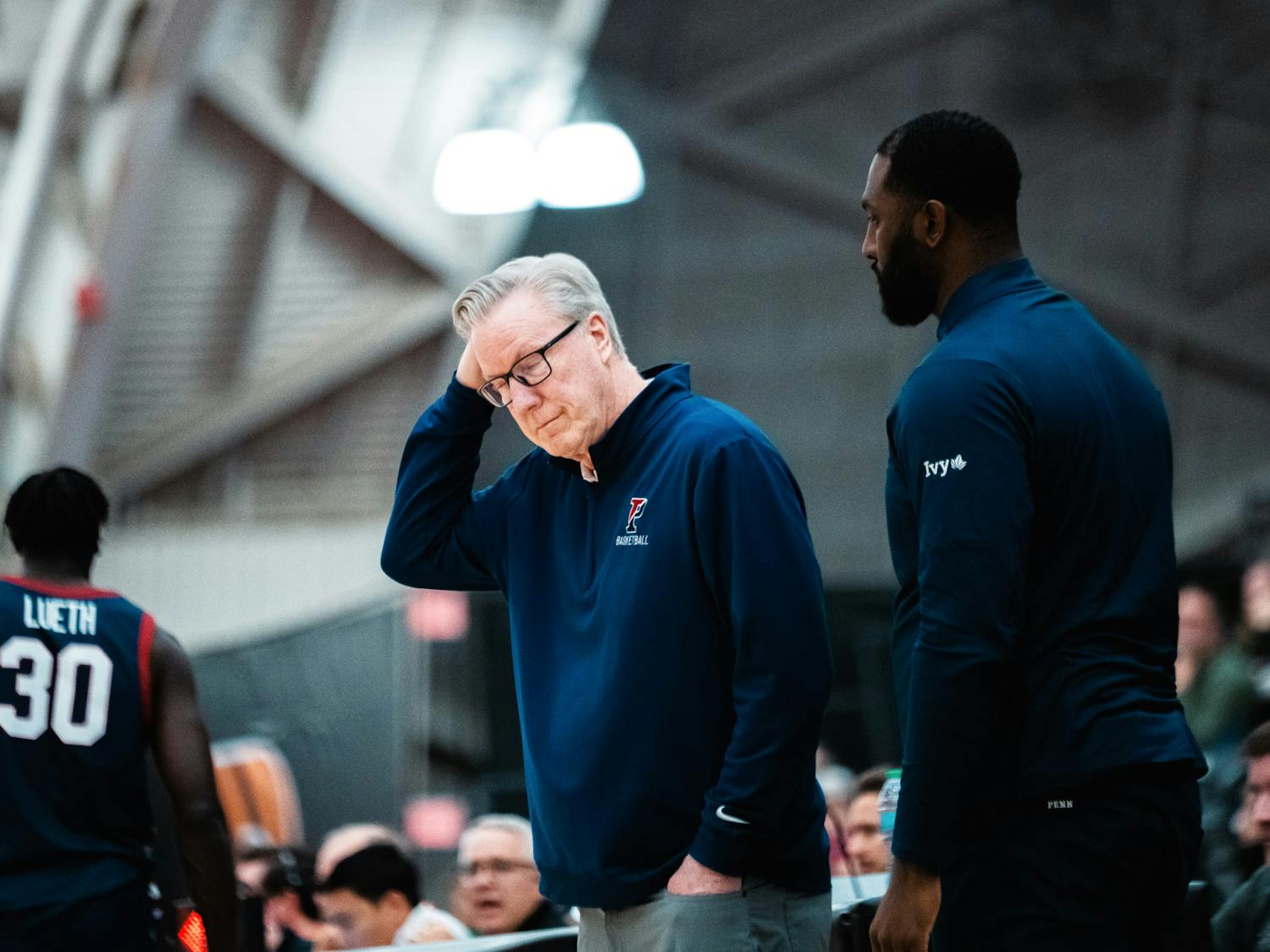There is a good chance that when the Penn Relays Carnival gets underway in 15 days, the crowd at Franklin Field won't be able to tell the difference between this year's high school races and last year's.
And that is a good thing.
Many of the fans in attendance will not know about the dispute between the governing bodies of New York and Pennsylvania high school athletics over schools not under their domains, because it has now been officially resolved.
"We've got it pretty much straightened out," Penn Relays Carnival Director Dave Johnson said this week. "The states have done what most of them could do and are able to do, and for the most part, the meet will look very similar to what it's always looked like."
The original controversy stemmed from the fact that a number of high schools which participate in the Penn Relays are not members of the Pennsylvania Interscholastic Athletic Association.
The PIAA and many other state associations follow a national set of rules on everything from the allowable age of competitors to how far teams can travel to meets. The associations which follow those rules -- so-called sanctioned associations -- often do not allow their schools to compete against non-sanctioned schools.
"We are compelled to only permit our member schools to participate against approved schools that are in good standing with their athletic associations," said Nina Van Erk, New York State Public High School Athletic Association Executive Director.
Van Erk added that the rules apply to intra-state competition as much as they do at meets when teams come from farther afield.
"There are schools in New York State that don't belong to any athletic association," she said. "Therefore we would never sanction their participation and we don't allow our schools to participate against them."
As with so many things, though, the paperwork can be tweaked somewhat to make the definitions of things work out in everybody's interest. Such is the case with the Penn Relays.
Non-sanctioned schools must sign a supplement to the regular Penn Relays participation contract which states that they will abide by all the standardized rules. The contract, however, must label the competition as one against a specific PIAA member school. That school is also formally established as the co-sponsor of the meet itself.
"Any [non-sanctioned] school," in this case Penn, "which is sponsoring an event that involves out-of-state schools has to get a co-sponsor which is a PIAA member," Johnson said.
This year, the co-sponsor is Strath Haven High School of Wallingford, Pa.
Strath Haven then co-sponsors the non-sanctioned school which wishes to enter the meet, and that school is "recommended for competition," as Johnson put it, on the submitted forms.
It is, to a degree, an exercise in bureaucracy.
"The co-sponsorship really works in name only," Johnson said.
For the state associations, the formality is as much about protecting their own interests as creating fair competition, according to PIAA Assistant executive Director Jodi Good.
"Each of the state associations where schools are invited from need to approve [the paperwork rules] in order to let their schools participate," she said. "In some state associations, if certain rules aren't followed their schools or athletes could be penalized."
Part of the reason why this controversy arose in the first place is that, unlike other states, the PIAA does not have an official mechanism for sanctioning non-member schools for events.
One recent result of this is that a number of non-PIAA schools could not participate in meets this past winter in New York.
For the Penn Relays, though, the parties involved were determined to get everything right.
"The end result is that a lot of states now have reasonable working relationships with each other," Johnson said. "It is a morass, but I think we've waded through the swamp and have gotten to the other firm ground."
Luckily for fans at the Penn Relays, this race against the clock has ended at just the right time.








